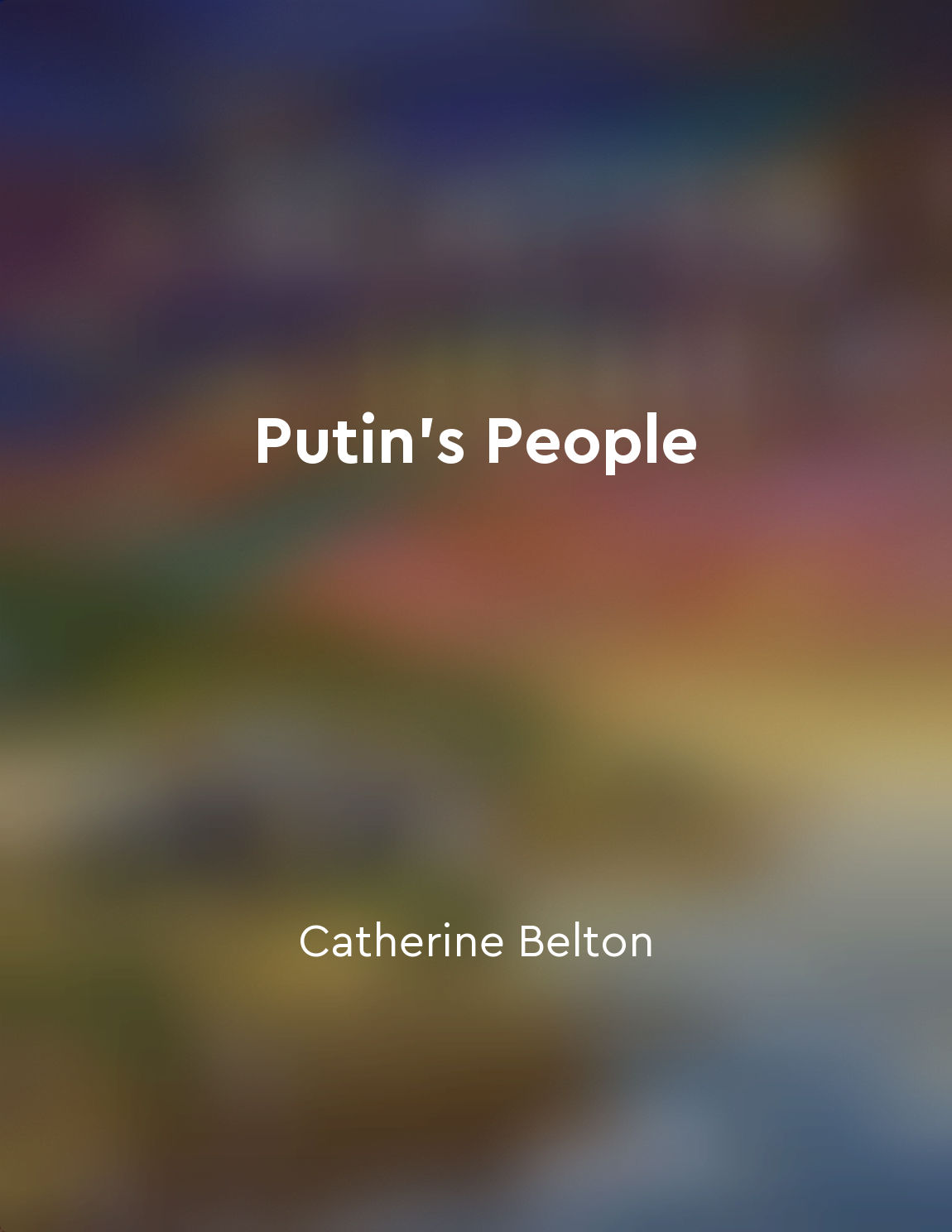Putin's government has sought to undermine democratic institutions in Russia and abroad from "summary" of Putin's People by Catherine Belton
Catherine Belton details how Putin's government has strategically worked to weaken democratic institutions both within Russia and beyond its borders. This calculated effort is aimed at consolidating power and maintaining control over the political landscape. By manipulating the media, stifling dissent, and cracking down on opposition voices, the Kremlin has effectively marginalized any challenges to its authority. In Russia, Putin's government has utilized a combination of legal maneuvers and strong-arm tactics to suppress political opposition and independent media. Laws have been passed to limit freedom of expression and assembly, while independent journalists have faced harassment and even violence. Opposition figures have been sidelined through targeted investigations and legal proceedings, effectively silencing any dissenting voices. Abroad, Putin's government has employed a range of tactics to undermine democratic institutions in other countries. This includes spreading disinformation and engaging in cyber warfare to influence elections and sow discord among foreign populations. By exploiting social media platforms and hacking networks, the Kremlin has sought to manipulate public opinion and destabilize democratic processes in countries around the world. The goal of these efforts is clear: to weaken democratic institutions and strengthen authoritarian rule both at home and abroad. By undermining the foundations of democracy and silencing dissenting voices, Putin's government aims to maintain its grip on power and suppress any potential threats to its authority. This systematic dismantling of democratic norms represents a significant threat to the principles of freedom and democracy, both in Russia and on the global stage.Similar Posts
He risked his life to tell the truth
The man stood before the judge, his heart pounding in his chest. He knew the consequences of his actions, yet he refused to bac...

dissolution of the Soviet Union
The dissolution of the Soviet Union in 1991 came as a shock to many, including the intelligence agencies of the Western world. ...
Ideology is a smokescreen
Ideology is a smokescreen. It's a simple concept, really. A way to distract from the truth. To create a facade that hides the r...

Putin has systematically eliminated political opponents and dissenting voices
Putin's calculated strategy to silence opposition and suppress dissent has been a defining feature of his rule. Through a combi...

Putin's People reveals the intricate web of connections linking Putin to his allies
Catherine Belton delves deep into the intricate network of relationships that bind Vladimir Putin to his inner circle of allies...

Putin has systematically eliminated political opponents and dissenting voices
Putin's calculated strategy to silence opposition and suppress dissent has been a defining feature of his rule. Through a combi...
Democracy is a responsibility that must be taken seriously
The notion of democracy as a responsibility is a weighty one, demanding serious attention and dedication from citizens. It is n...
The Ukrainian Crisis has deepened tensions
The Ukrainian Crisis has deepened tensions in Russia and further inflamed the struggle for power within the Bolshevik Party. Th...

role of technology in espionage
The use of technology in espionage has always played a crucial role in intelligence operations. From the early days of the Cold...
